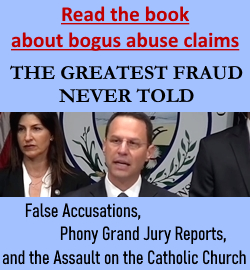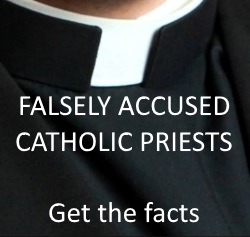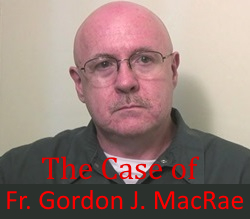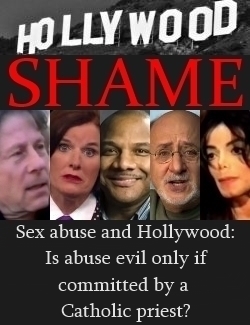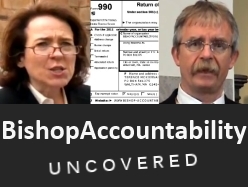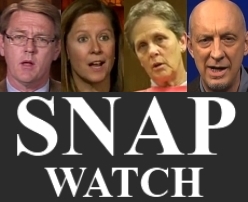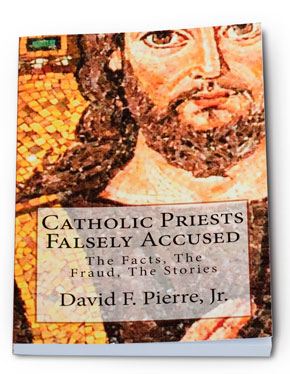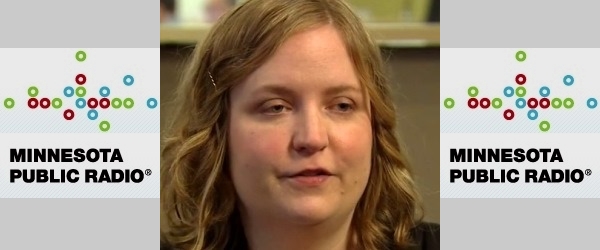
Guilty as charged if dishonesty were a crime: Madeleine Baran from Minnesota Public Radio (MPR)
In "Betrayed by Silence," Madeleine Baran and the other producers at Minnesota Public Radio (MPR) attempt to lend an air of scholarship and gravitas to their work by posting an extensive section of "Source Notes," which leads the audience to believe that their work has been carefully researched.
However, it appears that the folks at MPR were only betting their audience would not actually check those sources to see if they supported the claims being made.
Smearing the innocent
For example, in one section of the series, Baran takes particular aim at Rev. Kevin McDonough, who served for many years as vicar general under two different archbishops in the Archdiocese of St. Paul-Minneapolis.
McDonough counseled numerous abuse victims in his job during his tenure, and he did so with a genuine pastoral desire to assist them. Indeed, McDonough's concern for victims was palpable. Yet Baran seeks to portray McDonough in the most negative light by portraying him as dishonest, cold, and callous to victims. Baran boldly asserts in one paragraph:
"A priest caught groping young men in his bedroom did not have any deep-seated psychological problems, McDonough concluded. He assured a colleague that the misconduct was not 'the tip of some awful psycho-sexual iceberg but a previously reinforced pattern that now must be changed'."
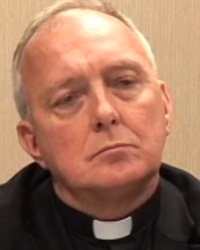
Smeared by MPR:
Rev. Kevin McDonough
However, when one looks to Baran's actual source of her claim, a 2004 letter written by McDonough, the actual letter says absolutely nothing about the priest – whom Baran mysteriously refuses to identify – "groping young men in his bedroom." Nada. Zilch.
Don't believe it? Read the letter for yourself.
Despite MPR listing five so-called producers for its "investigative series," it appears that none of them bothered to check if Baran's source actually supported what she claimed.
Another recurring theme throughout "Betrayed by Silence" is that Church officials always aggressively sought to "protect their own" to the detriment of victims. Yet when one looks to the very same 2004 letter written by McDonough, one tellingly reads:
"[In] my message to you last Friday, I emphasized that reports about even-potentially-criminal behavior should be brought immediately to the police."
McDonough's words are hardly indicative of someone looking to criminally "cover-up" crimes by clergy and "protect his own."
Again, Baran is flat-out dishonest here.
The non-smoking gun: Tom Doyle's 1985 report
Baran also repeats the oft-heard lie that Church officials, including Archbishop Emeritus Harry J. Flynn, willfully and recklessly ignored a 1985 report co-written by controversial priest Fr. Tom Doyle and others who foresaw the scope the clergy abuse problem and recommended that certain proactive measures be taken.
In truth, however, bishops had already begun to address the problem of clergy sex abuse well before 1985.
"As early as 1982, we saw policies and procedures coming to the attention of the USCCB (the United States Conference of Catholic Bishops) regarding specific child molestation cases, Teresa Kettelkamp, executive director of the Secretariat of Child and Youth Protection for the USCCB, has reported. "By 1983, 157 dioceses had policies in place."
These policies formulated the bishops' "Five Principles" in dealing with allegations of abuse. Bishops first articulated them in 1987 and then publicly pronounced them in 1992.
"Media characterizations of the report as a proposal either ignored or summarily rejected by the conference are inaccurate," bishops have responded.
Most notably, bishops most certainly did adhere to one key recommendation of Doyle's 1985 report, which actually led to disastrous consequences. Doyle's report strongly urged that abusive priests be immediately sent to psychiatric facilities for "treatment." Unfortunately, these "treatment centers" very often recommended that abusive priests be returned to active ministry, which was the very cause of much of the scandals. Recidivism among abusive priests only intensified the catastrophe within the Church and the harm to victims.
In other words, adhering to the recommendations of Doyle's report only exacerbated the Church's problem in dealing with abusive clergy!
But in typical fashion, Baran blatantly ignored these important facts and once again misled her audience.
**Important note** Madeleine Baran from MPR did not respond to repeated requests from TheMediaReport.com to answer questions about her reporting.
